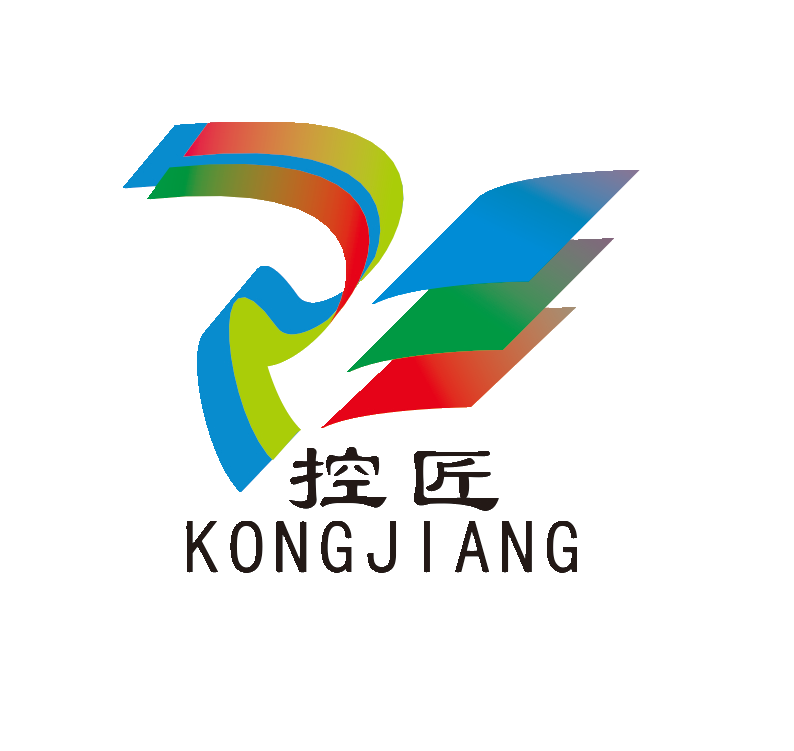

K-WANG


ABB Relion ® RET620 Transformer Protection and Control Device
Modular design: adopting a plug-in hardware architecture, supporting standard/wide size chassis, and adapting to different scene requirements.
Multi protocol communication: compatible with IEC 61850, Modbus, DNP3, supports GOOSE/SMV messages and IEEE 1588 time synchronization.
Pre configured Function Package: Provides two types of configurations: A (basic protection) and B (including RTD temperature protection), covering core functions such as differential, overcurrent, voltage/frequency protection, etc.
ABB Relion ® RET620 Transformer Protection and Control Device
Product positioning and functional architecture
RET620 is an intelligent electronic device (IED) designed specifically for medium voltage power grid transformers, belonging to Relion ® The 620 series supports protection, monitoring, and control of dual winding/triple winding transformers, autotransformers, and generator transformer groups. Its core features include:
Modular design: adopting a plug-in hardware architecture, supporting standard/wide size chassis, and adapting to different scene requirements.
Multi protocol communication: compatible with IEC 61850, Modbus, DNP3, supports GOOSE/SMV messages and IEEE 1588 time synchronization.
Pre configured Function Package: Provides two types of configurations: A (basic protection) and B (including RTD temperature protection), covering core functions such as differential, overcurrent, voltage/frequency protection, etc.
Core protection function
Differential protection
Three winding differential (87T): automatic CT ratio matching and vector group compensation, supporting six constraint CT input, including second harmonic/fifth harmonic braking to prevent excitation inrush current.
Low impedance grounding fault protection (87LOZREF): for winding grounding faults, including zero sequence current direction criterion, with sensitivity up to 5% of rated current.
Overcurrent and grounding protection
Multi stage overcurrent protection: supports three-stage phase overcurrent (51P) and six stage quick break overcurrent (50P), with configurable directional characteristics.
Ground fault protection: including four segment zero sequence overcurrent (51N) and three segment quick break zero sequence (50N), supporting negative sequence polarization direction criterion.
Voltage and frequency protection
Overvoltage/undervoltage protection: two-stage phase voltage protection (59/27) and residual voltage protection (59N/59G), suitable for system abnormal voltage monitoring.
Overexcitation protection (24): Based on U/f ratio monitoring, it prevents transformer core saturation damage.
Frequency protection (81): including over/under frequency protection and frequency change rate (df/dt) detection, supporting load shedding.
Auxiliary protection
Circuit breaker failure protection (50BF): Quickly trip adjacent circuit breakers when detecting circuit breaker refusal to move.
Thermal overload protection (49T): Dual time constant model, monitors winding temperature and triggers alarm/trip.
Monitoring and control functions
measurement and metrology
Real time monitoring of three-phase current/voltage, power, frequency, and sequence components, supporting harmonic analysis and load curve recording.
Disturbance Recorder (DFR): Stores waveforms before and after faults in COMTRADE format, supporting 12 analog signals and 64 switch signals.
Control and regulation
On load tap changer control (OLATC): Automatic voltage regulation, supporting parallel operation of single or multiple transformers.
SESRSYN: Monitor voltage phase, frequency, and amplitude during grid connection to ensure safe closing.
Condition monitoring
Trip Circuit Supervision (TCS): Real time monitoring of the integrity of the circuit breaker trip circuit.
CT/PT fault detection: Identify current/voltage circuit breaks or fuse faults.
Hardware and Interface
hardware module
Power module (PSM): Supports 48-250V DC/80-240V AC input, including fault output contacts.
Binary Input/Output Module (BIM/BOM): Up to 16 inputs/24 outputs, supporting high-speed pulse counting.
Analog Input Module (AIM): Supports 3-phase current (1A/5A) and voltage input, compatible with Rogowski coils.
communication interface
Ethernet interface: 100BASE-FX (fiber optic)/100BASE-TX (twisted pair), supporting IEC 61850-8-1 GOOSE.
Serial port module: RS-485/RS-232, compatible with Modbus/DNP3 protocol.
Application advantages
Overview of Multi Protocol Communication Function: RET620 supports multiple communication protocols, including IEC 61850, Modbus, DNP3, etc. Among them, IEC 61850 is an international standard for substation communication and modeling protocol, and RET620's support for it covers Edition 1 and 2, including High availability Seamless Redundancy (HSR) and PRP(Parallel Redundancy Protocol)、GOOSE(Generic Object Oriented Substation Event) Messages and IEC 61850-9-2 LE enable simpler wiring and supervised communication. Meanwhile, Modbus and DNP3 protocols also provide extensive compatibility for RET620, enabling it to communicate with devices from different manufacturers. In addition, the device also supports IEEE 1588 V2 Precision Time Protocol for high-precision time synchronization, ensuring precise and unified time between devices.
Advantages of application in the power system
Enhance system integration: The multi protocol communication function enables RET620 to seamlessly integrate with devices from different manufacturers and types in the power system. In a complex substation environment, there may be devices from multiple suppliers. With its support for multiple protocols, RET620 can effectively exchange data with these devices, achieve unified monitoring and management of the entire power system, and improve the system's integration and collaborative work capabilities.
Enhance data exchange efficiency: Different communication protocols are suitable for different application scenarios and data transmission requirements. RET620 supports multiple protocols that can select the most suitable method for data transmission based on specific situations, thereby improving the efficiency of data exchange. For protection action signals with high real-time requirements, they can be quickly transmitted through GOOSE messages of IEC 61850 to ensure timely response in case of faults; For device parameter queries and configuration operations with relatively low real-time requirements, Modbus protocol can be used for stable and reliable communication.
Improving system reliability: By supporting redundant protocols HSR and PRP, RET620 enhances system reliability at the communication level. In the event of network failure, redundancy mechanisms can ensure uninterrupted data transmission and avoid system failures caused by communication interruptions. When a communication link encounters a problem, the HSR or PRP protocol can automatically switch to the backup link to ensure that communication between devices is not affected, thereby improving the reliability and stability of the entire power system operation.
Adapting to different power system environments: Due to the large scale of the power system, the requirements for communication protocols may vary in different regions and application scenarios. The multi protocol support feature of RET620 enables it to adapt to various power system environments. Whether in newly built digital substations or traditional substations that require upgrading and renovating existing equipment, RET620 can meet different communication needs with its rich protocol support, providing convenience for the modernization and upgrading of the power system.

- YOKOGAWA
- Reliance
- ADVANCED
- SEW
- ProSoft
- WATLOW
- Kongsberg
- FANUC
- VSD
- DCS
- PLC
- man-machine
- Covid-19
- Energy and Gender
- Energy Access
- Renewable Integration
- Energy Subsidies
- Energy and Water
- Net zero emission
- Energy Security
- Critical Minerals
- A-B
- petroleum
- Mine scale
- Sewage treatment
- cement
- architecture
- Industrial information
- New energy
- Automobile market
- electricity
- Construction site
- HIMA
- ABB
- Rockwell
- Schneider Modicon
- Siemens
- xYCOM
- Yaskawa
- Woodward
- BOSCH Rexroth
- MOOG
- General Electric
- American NI
- Rolls-Royce
- CTI
- Honeywell
- EMERSON
- MAN
- GE
- TRICONEX
- Control Wave
- ALSTOM
- AMAT
- STUDER
- KONGSBERG
- MOTOROLA
- DANAHER MOTION
- Bentley
- Galil
- EATON
- MOLEX
- Triconex
- DEIF
- B&W
- ZYGO
- Aerotech
- DANFOSS
- KOLLMORGEN
- Beijer
- Endress+Hauser
- schneider
- Foxboro
- KB
- REXROTH
- YAMAHA
- Johnson
- Westinghouse
- WAGO
- TOSHIBA
- TEKTRONIX
- BENDER
- BMCM
- SMC
- HITACHI
- HIRSCHMANN
- XP POWER
- Baldor
- Meggitt
- SHINKAWA
- Other Brands
-
ABB 216AB61 Industrial Control Module for Automation Systems
-
ABB 5SHX1060H0003 High Power Thyristor Module for Industrial Power Control
-
ABB 07KT97H3 PLC Central Processing Unit for Industrial Automation
-
ABB 3BHB005171R0101 Power Semiconductor Module for Industrial Power Systems
-
KEBA E-SP-CCEC/A/22 - Keyboard Panel
-
KEBA ERHL33 - Module
-
KEBA K-FTC-AN/B - Control Panel Board
-
KEBA DO321 1914D-0 - Digital Output Module
-
KEBA T70Q - Teach Pendant
-
KEBA BL272/A / BL272/B - Bus Coupling Module
-
KEBA T70R - Teach Pendant
-
KEBA PRONET-E-20A-K - Servo Drive
-
KEBA T55-RA0-AU0-LK - Mobile HMI KeTop
-
KEBA DO-272/A - Digital Output Module
-
KEBA PS240/A - Power Supply Module
-
KEBA 2134-00393 - Module Code
-
KEBA E-10-ANALOG-SU - Analog Card
-
KEBA 1904D-0 / D1458E - E-10 Analog Card
-
KEBA FM265A - Function Module
-
KEBA CR17910086 - Controller Board
-
KEBA C5G-TP5WC2 - Robot Teach Pendant
-
KEBA PD242A - Power Supply Module
-
KEBA DI-325 - Digital Input Card
-
KEBA C2-TM-240/A - Digital Input Module
-
KEBA D1547C - I/O Bus Coupling Board
-
KEBA CR-092 - Interface Module
-
KEBA 3HAC023195-003 - IRC5 Teach Pendant Cable
-
KEBA KETOP-T150-MA0 - Mobile HMI
-
KEBA KC-P30-EC24011 - Control Module
-
KEBA 1770B-1 - E-8-THERMO Card
-
KEBA T20T-T00-AR0-CE6 - KeTop Terminal
-
KEBA D1633C-1 - CPU Card
-
KEBA HT401-232-8/0 - Teach Pendant
-
KEBA AO-570 - Analog Output Module
-
KEBA T10-mAb-DMV - Handheld Terminal
-
KEBA C70-rqa-AK0-Le - KeTop Teach Pendant
-
KEBA 1918F-0 - Digital Output Board
-
KEBA T10-mAa-DMV - Handheld Terminal
-
KEBA HT2-SCHLUSSELS - Key Switch for HT2
-
KEBA T100-003-CES - HMI Terminal
-
KEBA GVME610IO - I/O Module
-
KEBA HT501-231 - Teach Pendant
-
KEBA E-CG-CONTROL - Graphic Control Card
-
KEBA D1420F - F-SIC-1 Circuit Board
-
KEBA E-ANA-SUB2 - Analog Sub-module
-
KEBA HT401-222-4 - Teach Pendant
-
KEBA II030 - Input Module
-
KEBA T155-M10-AN0-W - KeTop Mobile HMI
-
KEBA CP088-B - Processor Module
-
KEBA HT40123280 - Operating Terminal
-
KEBA HT4222 - Handheld Terminal
-
KEBA H24025369 - Replacement Part
-
KEBA H24024891 - Replacement Part
-
KEBA SR161 - Analog Input Card
-
KEBA 1762A - E-CRT/EL Circuit Board
-
KEBA T50-011-CES-CE5 - Operator Terminal
-
KEBA E-CON-ELD/B/15 - Control Panel
-
KEBA E-8-THERMO - Thermocouple Card
-
KEBA 330/A-1211-20 - Axis Module
-
KEBA T55-maw-AU0-CE6 - Mobile HMI
-
KEBA C150-110-AK0-N - KeTop HMI
-
KEBA HT4-20656 / HT4-221 - Handheld Terminal
-
KEBA 18658-1 - Analog Board
-
KEBA LM64P89 - LCD Display Screen
-
KEBA E-CPU-88-A - CPU Board
-
KEBA D-CE/59718/15 - Control Board
-
KEBA KC-P30-ES2400E2-E00 - Control Module
-
KEBA 3HAC12929-1 - Teach Pendant SX TPU
-
KEBA E-CON-CC100/A - Control Panel Engel
-
KEBA T200-M01-P20-WES7 - Panel PC Windows Embedded
-
KEBA KC-P30-ES2400B2-M0R - KeControl C3 Module
-
KEBA E8ANALOGC - Analog Card
-
KEBA E-CPU-88-B - CPU Board
-
KEBA T55-raw-AU0-CE6 - Mobile HMI
-
KEBA D1633C - CPU Board
-
KEBA T55-MAW-Au0-CE6 - Mobile HMI
-
KEBA 3HAC11266-4 - Teach Pendant Cable
-
KEBA T20e-m00-Br0-C - Handheld Terminal
-
KEBA E-3-ACU-INC - Controller Board
-
KEBA E-PS-24V - Power Supply Module 24V
-
KEBA C55-2aw-1U0-R - Control Unit
-
KEBA T70-qqu-Aa0-LK - KeTop Teach Pendant
-
KEBA PS244 - Power Supply Module
-
KEBA ECPU186B - CPU Circuit Board
-
KEBA E-8-ANALOG/C - Analog Input Card Engel
-
KEBA AT-4041 - KeControl C3 Controller
-
KEBA T50-ADP - Adapter Module
-
KEBA CP088/D - Control Processor Module
-
KEBA CU312 - Central Unit Module
-
KEBA K2-400 SC440/A - Communication Module
-
KEBA CU212 - Power Supply Module
-
KEBA T20T-T00-AR0-C - KeTop Handheld Terminal
-
KEBA HT4014X20B21572 - Teach Pendant
-
KEBA HT4010V4X201K4 - Operating Terminal
-
KEBA HT401/NC-4X20/20844 - Handheld Terminal
-
KEBA RS-091 / RS091A - Remote Station Module
-
KEBA E8THERMOA - Thermocouple Input Card
-
KEBA TI-570 - Temperature Input Module
-
KEBA C35E 10m/79421/02 - KeTop Teach Pendant
-
KEBA T40-001/58599/06 - Teach Pendant
-
KEBA CR17910087 C5G-GTP5 - Controller Board
-
KEBA T20E-R00-AR0-C - Handheld Terminal
-
KEBA 3HAC023195-001 /02 - Teach Pendant Unit
-
KEBA AR281 - Analog Input Module Engel
-
KEBA D3-DA330/A-0611-20 - D3 Axis Module
-
KEBA CU313 / C-SICU313KEB - Control Unit
-
KEBA k2-700 - Kemro Control System
-
KEBA CU211 - Central Unit Power Supply Module
-
KEBA C5G-TP5WC - Robot Teach Pendant
-
KEBA C100D-CE - Control Panel
-
KEBA D3-DR361/D-6341-30 - D3 Drive Module
-
KEBA D3-DP/A-1000-0 - D3 Supply Module
-
KEBA SXTPU-21664 - Teach Pendant Unit
-
KEBA T70-rqa-AK0-LK - KeTop Touch Screen Glass Panel
-
KEBA C10-1aa-abb - Control Terminal
-
KEBA T50-T41-CPU - CPU Module
-
KEBA 3HAC023195-001 - IRC5 Sx TPU 2 Teach Pendant Controller
-
KEBA D3-DA 330/A-1211-00 - D3 Axis Module
-
KEBA K2-200 250/X (71580) - Processor Module
-
KEBA O70-bra-A0a-F - Operator Panel
-
Creative Duster Vinyl Brush - Record Stylus Cleaner Brush
-
KEBA 3HAC12929-1/04 - Touch Panel Touchscreen Glass Replacement
-
KEBA OP350/Y-1016 - Keyboard Membrane Protective Film K2-200
-
KEBA DO 321/B - Digital Output Card
-
KEBA DI 325/B - Digital Input Module
-
KEBA E-16-DIGOUT-PLUS (D1456E-2) - Digital Output Board
-
KEBA AI 240/A (068370) - Kemro K2-200 Analog Input Module
-
KEBA TM 220/A (066676) - Kemro K2-200 Module

KONG JIANG


Add: Jimei North Road, Jimei District, Xiamen, Fujian, China
Tell:+86-15305925923


